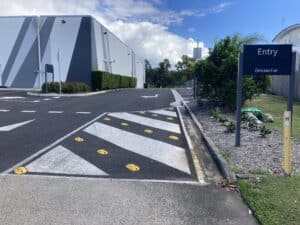

Impact of Speeding on Road Accidents
Speeding remains a pervasive issue on Australian roads, contributing significantly to road accidents and fatalities. According to recent statistics, a substantial percentage of accidents are directly linked to exceeding speed limits. The impact of speeding is particularly severe, leading to a higher likelihood of accidents, increased severity of injuries, and elevated risks for pedestrians and cyclists.
Current Speed Limit Enforcement Measures
Australia employs various speed limit enforcement measures to curb speeding. These include traditional methods such as speed cameras, radar guns, and police patrols. However, challenges persist, with some drivers evading detection and enforcement not always deterring reckless behaviour. Examining the effectiveness of these measures is crucial in understanding their limitations and identifying areas for improvement.
In tackling speeding concerns, innovation is key. Implementing advanced speed detection technologies, such as automated camera systems with artificial intelligence, can enhance accuracy and coverage. Additionally, public awareness campaigns emphasizing the dangers of speeding and the importance of adhering to speed limits are integral to changing driver behaviour.
Current Road Infrastructure in Australia
Australia’s diverse landscape poses unique challenges to road infrastructure. While major urban centres boast modern and well-maintained roads, rural and remote areas face infrastructural deficiencies. There are many rural areas requiring improvement, such as road design, signage, and maintenance practices.
Infrastructure-Related Road Safety Issues
Road safety issues often stem from inadequate infrastructure. Poorly designed intersections, lack of pedestrian crossings, and insufficient signage contribute to accidents. Identifying these issues is the first step in formulating targeted solutions to enhance overall road safety.
Technological Advancements in Road Safety Challenge
The integration of technology has transformed road safety initiatives. From vehicle-to-infrastructure communication to the development of intelligent transportation systems, technological advancements offer promising solutions. Understanding these innovations is crucial for implementing effective strategies to reduce road accidents.
Implementation of Smart Traffic Management Systems
Smart traffic management systems leverage real-time data and communication technologies to optimize traffic flow, enhance safety, and reduce congestion. Exploring the implementation of these systems in Australian cities can significantly contribute to proactive traffic management and accident prevention.
How Technology Can Assist in Reducing Road Accidents
Technology plays a pivotal role in reducing road accidents. Advanced driver assistance systems, automated traffic signals, and predictive analytics contribute to a safer road environment. Australia needs to accelerate the adoption of such technologies, emphasizing their potential to save lives and prevent accidents.
Addressing key road safety issues in Australia requires a comprehensive and collaborative effort. This includes improving road infrastructure, and leveraging technology to create safer roads for all Australians.
Unique Road Safety Challenges in Urban Areas
Urban centres pose distinct road safety challenges driven by high population density, complex traffic patterns, and diverse modes of transportation. The prevalence of pedestrians, cyclists, and public transport, coupled with heavy vehicular traffic, creates a dynamic environment prone to accidents. Common challenges include congestion, limited visibility, and the need for efficient traffic flow management.
Enhancing Safety in Busy City Environments
To address urban road safety challenges, proactive strategies are essential we must implement various traffic calming measures, including strategically placed speed humps, pedestrian crossings, and traffic islands. Collaborating with urban planners and local authorities to work towards creating safer streets by prioritizing pedestrian-friendly infrastructure, optimizing traffic signal timings, and enhancing public transportation options.
Road Safety Issues Specific to Rural Regions
Rural areas present a different set of road safety challenges. Long stretches of open roads, limited infrastructure, and reduced law enforcement coverage contribute to unique risks. Factors such as wildlife crossings, unmarked intersections, and the absence of street lighting can lead to increased accident rates. The lower population density also means longer emergency response times, amplifying the impact of accidents.
Solutions for Less Populated and Remote Areas
Tailoring solutions to address rural road safety issues is crucial for safeguarding communities. Various ways of improving the safety in these areas include the installation of reflective road markings, warning signage for wildlife crossings, and targeted speed management measures. Implementing community education programs on defensive driving and emergency response protocols can empower residents to navigate rural roads safely.
While urban and rural environments present distinct challenges, a holistic approach to road safety is imperative for a cohesive and effective strategy. A balanced nationwide approach is needed, taking into account the diverse needs of both urban and rural regions.
Integrated Traffic Management Systems
Investing in integrated traffic management systems that consider the unique requirements of urban and rural areas can enhance overall road safety. This includes adaptive traffic signals, smart signage, and real-time data analytics to optimize traffic flow in urban centres and improve visibility on rural roads.
Community Engagement and Education
Empowering communities through education is a cornerstone of effective road safety initiatives. Community engagement programs must be supported and tailored to urban and rural contexts. This involves collaborating with local schools, community groups, and law enforcement agencies to raise awareness about the specific challenges each region faces and promote responsible road use.
Flexible Infrastructure Solutions
Recognizing the need for flexibility and adaptable infrastructure solutions we must consider and implement speed management measures, such as speed humps and traffic islands, which can be customized based on the unique requirements of urban and rural roads. This ensures that safety measures are effective in diverse settings.
Addressing regional variances in road safety requires a nuanced and strategic approach. By embracing innovation and community engagement, we envision a future where road safety is a shared responsibility, and our roads are safer for everyone.
Road Safety as a National Priority
Australia, as a nation, has long recognized the importance of road safety. The current landscape is shaped by a range of policies aimed at reducing accidents, minimizing injuries, and saving lives on our roads. Policies encompass a wide array of areas, from speed limits and alcohol restrictions to vehicle standards and public awareness campaigns.
Initiatives to Address Specific Challenges
Recent policy initiatives have focused on addressing specific road safety challenges. These include campaigns targeting distracted driving, programs encouraging the use of seat belts, and regulations promoting the adoption of advanced safety technologies in vehicles. The comprehensive approach underscores the multifaceted nature of road safety concerns in Australia.
Recognizing Gaps in Existing Policies
Despite the progress made, there are persistent challenges that demand a proactive stance. A critical evaluation of existing policies is needed to identify gaps and areas for improvement. This includes revisiting speed limits in specific zones, enhancing penalties for traffic offences, and introducing measures to address emerging concerns such as the rise of electric scooters and other alternative modes of transportation.
Deterrence and Education
Advocacy for stricter regulations is not solely about punishment but also about deterrence and education. Initiatives that emphasize the consequences of reckless driving, speeding, and other hazardous behaviours should be encouraged and supported. Public awareness campaigns, coupled with robust enforcement, create a powerful combination to promote responsible road use.
Shared Responsibility for Safer Roads
Road safety is a shared responsibility, and collaboration between the private sector and government bodies is imperative. This collaboration involves contributing insights into the design and implementation of infrastructure projects, sharing data on the effectiveness of traffic calming measures, and participating in forums aimed at shaping future policies.
Data-Driven Decision Making
In the realm of road safety, data is a powerful ally. Government bodies to collect and analyze relevant data that can identify trends, assess the impact of existing policies, and propose evidence-based solutions to address evolving challenges.
Proactive Policy Advocacy
Being proactive in policy advocacy is integral to creating lasting change. We need to stay abreast of emerging trends, technologies, and safety concerns. This proactive approach ensures that policies can adapt to the evolving landscape of road use, technology, and urban planning
Government policies and advocacy are instrumental in shaping the road safety landscape in Australia. Through collaboration with government bodies, advocacy for stricter regulations, and a commitment to data-driven decision-making, we envision a future where our roads are safer, and every journey is a secure one for all Australians.
 Navigating the Complexities of Speeding Concerns
Navigating the Complexities of Speeding ConcernsThe statistics are sobering – speeding remains a major contributor to road accidents and fatalities in Australia and there is real urgency in addressing this issue comprehensively. Stricter regulations and innovative solutions align with the broader national goal of reducing speeding-related incidents. By leveraging advanced speed detection technologies and promoting public awareness, we aim to change behaviours and make our roads safer.
The dichotomy between urban centres and rural areas introduces distinct challenges and we need to recognize the unique issues each region faces and tailor solutions accordingly. From implementing traffic calming measures in bustling city centres to addressing rural challenges such as wildlife crossings, our approach is adaptive and sensitive to the diverse needs of Australian communities.
As we conclude this exploration, Speed Humps Australia envisions a future where road safety is not just a priority but a shared value embedded in the fabric of our communities. Our commitment to collaboration, innovation, and advocacy positions us as a leading force in shaping the road safety landscape. Through ongoing initiatives, community engagement, and a proactive approach to policy advocacy, Speed Humps Australia stands firm in its mission to pave the way for safer roads for all Australians.
In the journey towards safer roads, Speed Humps Australia invites you to join the conversation, share your insights, and be a part of the collective effort to make our roads secure for every journey. Together, let’s navigate towards a future where road safety is not just an aspiration but a reality we all experience every time we step onto the road.
At Speed Hump Australia, we are dedicated to enhancing road safety challenge through innovative and effective solutions. Our commitment to creating safer roads, our comprehensive understanding of the science and psychology behind speed humps, and our track record of successful installations make us your ideal partner in road safety.
Whether you’re looking to improve safety in school zones, transform residential neighbourhoods, or create secure business districts, Speed Humps Australia offers tailored solutions that address your unique needs. Join us in the pursuit of safer roads and a brighter future for all road users.
The road to safer and responsible driving is one we all share, and Speed Hump Australia is here to lead the way.
Get in touch with us today to request a quote or discuss how we can help with providing a tailored solution to your unique project requirements.



For 10 years, our focus has been on one thing: to provide one style of product and to do it well.
Our wheel stops, speed humps and rumble bars meet Australian Standards, don’t fade, and we’ve never needed to replace one.

For 10 years, our focus has been on one thing: to provide one style of product and to do it well.
Our wheel stops, speed humps and rumble bars meet Australian Standards, don’t fade, and we’ve never needed to replace one.